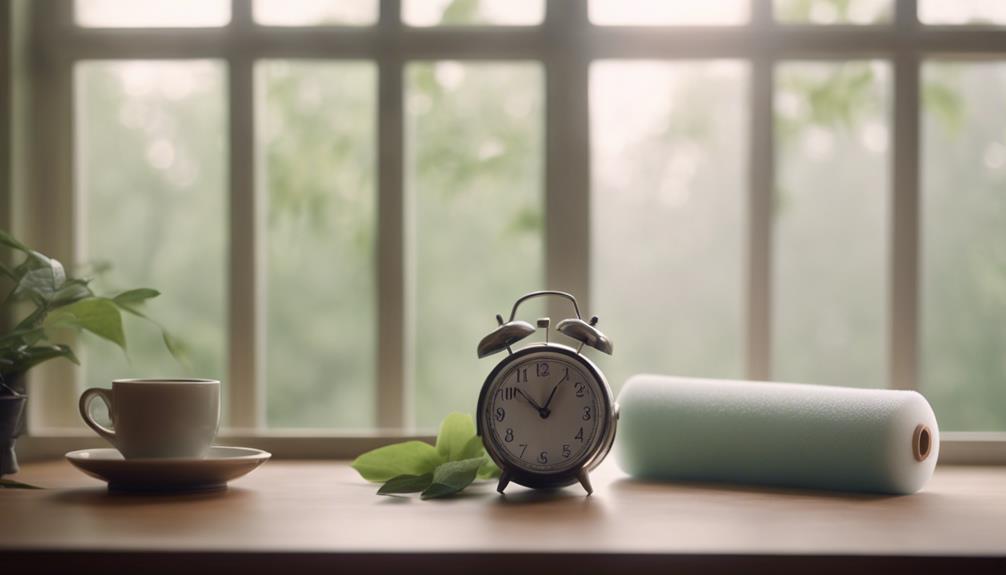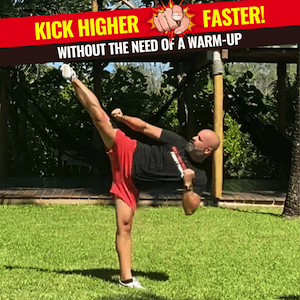As you continue training in martial arts beyond age 40, optimizing your recovery strategy is essential to maintain peak performance. Start by incorporating rest days and adjusting training intensity based on fatigue levels and muscle soreness. Prioritize hydration, consuming at least two liters of water daily, and maintain adequate protein intake to support muscle recovery. Include active recovery sessions, like yoga, and consider incorporating supplements such as protein shakes, creatine, and collagen. By fine-tuning your training schedule, nutrition, and recovery routine, you'll set yourself up for faster recovery and enhanced performance – and there's more to explore to optimize your approach.
Key Points
- Incorporate rest days and adjust training intensity to allow for muscle recovery and prevent overtraining.
- Prioritize proper hydration and nutrition, including protein intake and balanced meals, to support muscle recovery.
- Utilize active recovery techniques, such as yoga and low-impact exercises, to enhance blood flow and reduce muscle stiffness.
- Implement stress-reduction practices, like meditation and deep breathing, to manage chronic stress and promote mental recovery.
- Consider supplements like protein shakes, creatine, and collagen to aid in muscle recovery and joint health.
Optimizing Your Training Schedule
How effectively do you manage your training schedule to optimize recovery as a martial artist over 40? Effective management of your training schedule is essential for recovery, especially as you age.
Incorporating rest days into your training schedule allows for muscle recovery and prevents overtraining. Aim for at least one full rest day per week to enable your muscles to repair and rebuild.
Adjust your training intensity based on fatigue levels and muscle soreness. Focus on lower intensity on days following strenuous workouts to aid recovery.
Implement active recovery sessions, such as yoga or light swimming, on off days to promote blood flow and enhance muscle recovery without high exertion.
Monitor your training volume and frequency to balance workout intensity with sufficient recovery time. This balance is key to optimizing performance and avoiding burnout.
Utilize a structured training program that allows for periodization, alternating between phases of intense training and recovery. This approach maximizes gains while minimizing injury risk.
Effective Injury Recovery Strategies
Managing your training schedule effectively is just the first step in optimizing recovery as a martial artist over 40. To additionally enhance your recovery, consider incorporating active recovery techniques, such as low-impact exercises and mobility work, into your routine. These activities can improve blood flow and reduce muscle stiffness, leading to faster recovery.
Additionally, regular massages can help alleviate muscle soreness and prevent injuries by breaking up lactic acid buildup from training.
Prioritizing proper hydration is also essential for muscle recovery. Aim to consume at least two liters of water daily to reduce the risk of dehydration-related injuries.
Moreover, adequate protein intake is vital for muscle repair and recovery. Target 0.75 to 1 gram of protein per pound of bodyweight, especially around workout times.
Effective post-workout recovery strategies also include utilizing cold exposure methods, such as ice baths or contrast showers, to reduce inflammation and speed up recovery.
Nutrition and Hydration Techniques
In conjunction with a well-structured training schedule and active recovery techniques, a balanced diet and proper hydration play an essential role in optimizing recovery for martial artists over 40. Your body needs adequate nutrition and hydration to repair and rebuild muscle tissue after intense training sessions.
Aim for a balanced diet rich in complex carbohydrates, proteins, and healthy fats to support sustained energy levels and effective muscle repair. As a martial artist, you require a minimum of two liters of water daily to aid in muscle recovery and reduce soreness post-training.
Proper nutrition timing is also important. Consuming protein within 60-90 minutes after your workout maximizes muscle protein synthesis and enhances recovery rates. Target an intake of 0.75 grams of protein per pound of body weight.
Additionally, incorporating a carb-protein mix post-exercise can greatly improve recovery processes and replenish glycogen stores. Don't neglect hydration and electrolyte balance, as dehydration can impair muscle function and recovery.
Consistent fluid intake throughout the day is essential to support your body's recovery needs. By prioritizing nutrition and hydration, you'll be better equipped to optimize your recovery and maintain peak performance.
Enhancing Your Mental Recovery
While a well-structured training schedule, active recovery techniques, and proper nutrition and hydration are essential components of an effective recovery strategy, mental recovery is equally important for martial artists over 40.
As you navigate the demands of martial arts training, it's imperative to prioritize mental relaxation and mindfulness techniques to optimize your recovery efforts. Engaging in activities like yoga or meditation can considerably reduce chronic stress levels, enhancing your overall performance and recovery.
Deep breathing exercises can also alleviate tension, promoting better oxygen flow to your muscles post-training.
Maintaining a positive mindset is essential for consistent recovery efforts. Celebrating small victories in training can boost your motivation and commitment, helping you stay focused on your goals.
It's also important to take breaks and participate in leisure activities outside of martial arts to manage training-related stress. By incorporating these mental recovery strategies into your routine, you can enhance your mental clarity, reduce stress, and optimize your overall recovery process.
Supplements for Faster Recovery

Optimizing your recovery strategy with targeted supplements can greatly enhance your body's ability to repair and adapt to the physical demands of martial arts training.
As a martial artist over 40, you can benefit from incorporating specific supplements into your routine. Protein shakes, particularly those containing whey protein, can considerably aid in muscle recovery post-training by providing essential amino acids necessary for muscle repair.
Additionally, creatine supplementation has been shown to improve strength and recovery rates, making it a beneficial addition to your regimen.
To support joint health and recovery, consider adding collagen supplements to your routine. This is especially important for martial artists over 40 who may experience increased joint stress.
Moreover, a carb-protein mix, such as chocolate milk, can be effective for replenishing glycogen stores and enhancing recovery when consumed shortly after workouts.
Vitamin D and fish oil supplements can also contribute to reducing inflammation and improving recovery processes.
By incorporating these targeted supplements into your routine, you can enhance your body's ability to recover from intense training sessions and optimize your performance as a martial artist.
These supplements can help you train harder and recover faster.
Managing Stress and Fatigue
As you navigate the physical demands of martial arts training over 40, managing stress and fatigue becomes fundamental for maintaining peak performance and facilitating recovery. Chronic stress can greatly hinder your recovery, so it's essential to implement stress-reduction practices.
Meditation and yoga can enhance both mental focus and physical recovery. Prioritizing regular breaks and leisure activities helps alleviate training-related stress, promoting a balanced approach that supports overall well-being and recovery.
Deep breathing exercises can effectively reduce tension and promote relaxation, which is critical for ideal recovery after intense training sessions. Maintaining a consistent sleep schedule also contributes to better rest and recovery, as sleep deprivation negatively impacts hormone levels and overall recovery processes.
Engaging in mindfulness techniques can enhance your ability to listen to your body, allowing for better recognition of limits and appropriate adjustments in training intensity to prevent fatigue.
Creating a Recovery Routine

Managing stress and fatigue effectively sets the stage for a well-structured recovery routine. As a martial artist over 40, it's vital to create a routine that supports your body's needs.
Start by prioritizing hydration, aiming to consume at least two liters of water daily to minimize the risk of dehydration and support overall recovery processes.
In addition to hydration, schedule regular sleep patterns to achieve 7-9 hours of quality sleep each night. This is when your body repairs and rejuvenates itself most effectively.
A balanced diet rich in complex carbohydrates, proteins, and healthy fats is also important for sustaining energy levels and facilitating effective recovery after training sessions.
Incorporate mobility exercises into your post-training routine to enhance flexibility, reduce muscle stiffness, and minimize injury risks.
Consider adding active recovery days, such as light yoga or walking, to promote blood flow and aid in muscle recovery.
By integrating these elements into your recovery routine, you'll be better equipped to handle the physical demands of martial arts training and optimize your overall recovery.
A well-structured recovery routine will help you perform at your best and reduce the risk of injury.
In Summary
As a martial artist over 40, you can speed up recovery by integrating targeted techniques into your regimen. Tailor your training schedule, adopt evidence-based recovery methods, and refine your nutrition strategy to expedite physical repair. Manage stress and fatigue effectively, incorporate targeted supplements, and commit to a well-structured recovery routine to guarantee your body is fully equipped to adapt and perform. Monitor and adjust these approaches as your body changes with time and age.



